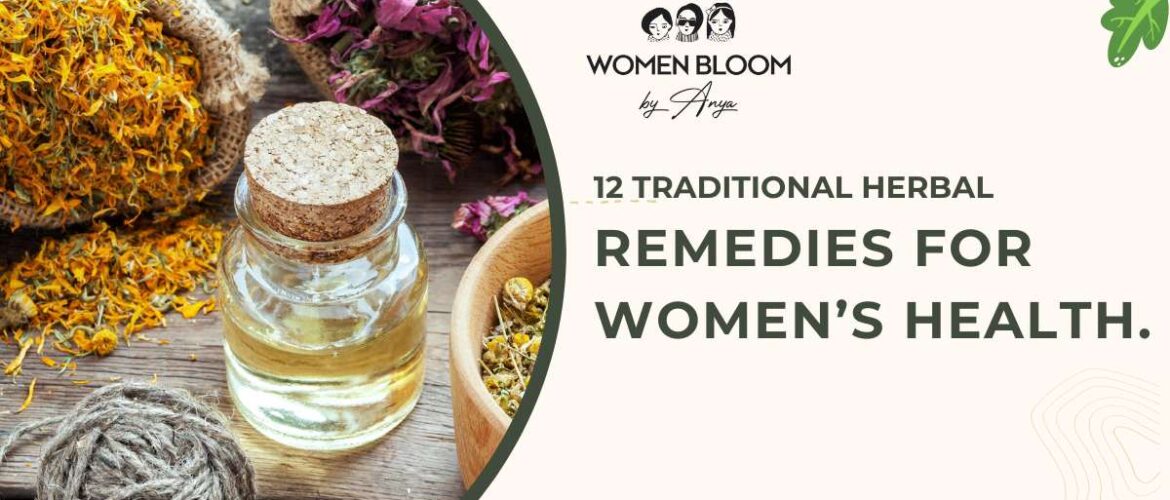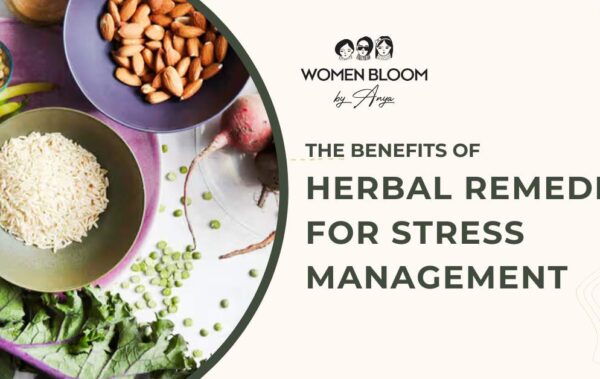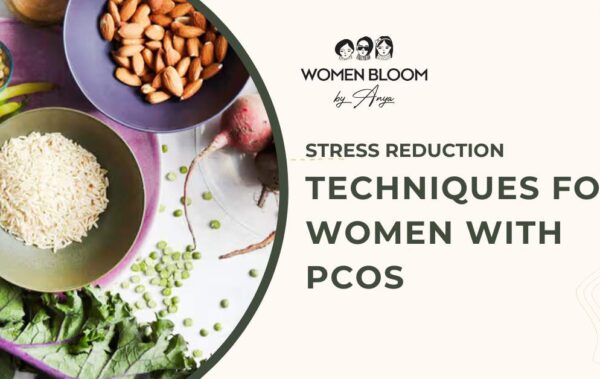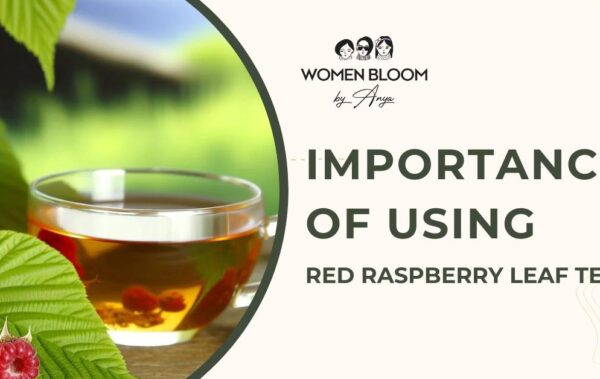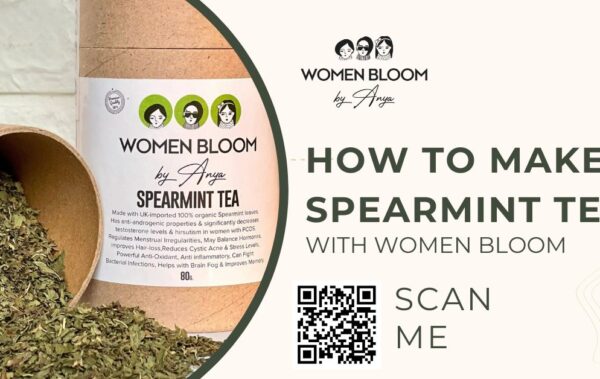In Pakistan, traditional herbal remedies are extremely valuable for women’s health care because of its long-standing customs and treatments that are ingrained in the national identity.
Although there are advantages to ancient herbs, contemporary healthcare procedures must be added for improved patient results.
Seeking the advice of renowned gynecologists is essential for complete women’s health care. We can create a more empowered and healthy future for women’s health in Pakistan by fusing traditional knowledge with contemporary medical breakthroughs.
Let’s dive directly into the article about traditional herbal remedies for women’s health so that we can quickly incorporate them in our food to get all the benefits from them.
12 Best herbal remedies for women’s health:
Seed cycling:

The seed cycling remedy can naturally treat hormone inconsistencies, PCOS and irregular menstrual cycles, hirsutism, irritability, premenstrual syndrome, hormonal acne, and other hormone-related illnesses.
Flax, sesame, sunflower, and pumpkin seeds are an excellent source of fiber, protein, and omega-3 fatty acids, among other nutrients. Incorporate it into baked items or smoothies to offer an extra nutritious boost.
How to consume seeds?
You may crush the seeds and add them to smoothies, yoghurt, salads, and porridge. You can also eat the seeds raw in slightly warm water.
- Day 1–14: It is recommended to take one tablespoon of flax and pumpkin seeds with breakfast.
- Day 15–28: Eat breakfast with one tablespoon of sesame and sunflower seeds, respectively.
Lavender:
Research suggests that using lavender in aromatherapy or orally helps reduce anxiety. Taking lavender orally may cause migraines, gastrointestinal pain, and constipation. Oral lavender may cause hormone disturbance, thus it is not suggested for children or teens.
How to use: Lavender in essential oil is used in aroma therapies and massage techniques for optimal relaxation.
Spearmint tea:

Spearmint tea is brewed from spearmint leaves and is supposed to help with tranquillity, digestion, and sharpen memory.
The anti-androgenic properties of spearmint significantly reduce testosterone levels and hirsutism in PCOS-affected women.
Furthermore, it may help manage irregular menstruation, balance hormones, improve female hair loss, reduce stress and cystic acne, fight bacterial infections, lower blood sugar, aid in memory enhancement, and have powerful antioxidant and anti-inflammatory effects.
How to consume: Add one spoon of spearmint tea in 1 cup of hot water.
You can bring the water to a boil or just consume it in lukewarm water. The choice is yours.
Cumin:
Native to Southwest Asia and the Mediterranean, cumin is a spice. It is produced from Cuminum cyminum seeds, which have a unique flavor that is earthy, nutty, and spicy.
Cumin may help lower blood cholesterol and shield the liver from a high-fat diet.
Additionally, by enhancing insulin sensitivity and reducing blood sugar, cumin may guard against type 2 diabetes.
By lowering triglycerides and LDL (bad) cholesterol and raising HDL (good) cholesterol, it may also prevent heart disease.
Although some research suggests that the bioactive chemicals in cumin may have a soothing impact, no benefits on type 2 diabetes, sensitivity to insulin, or cardiovascular health were confirmed by these investigations.
How to use: You can use cumin powder over yoghurt or in your favourite dishes.
You can add one full spoon of cumin in lukewarm water with honey. The remedy is best for water loss.
Stress buster tea:

Stress buster tea is made with top grade herbs, stress buster tea naturally lowers tension, encourages sleep, improves digestion, and has a relaxing impact on both the body and the mind.
Stress Buster Tea improves mood and has the potential to reduce anxiety and sadness. The tea can enhance focus and potentially aid with weight control.
How to use:
Add 1 spoon of stress buster tea in hot water and drink it.
Turmeric:
The yellow-colored spice known as turmeric is another well-liked Ayurvedic treatment.
Its primary active ingredient, curcumin, possesses potent anti-inflammatory and antioxidant qualities.
It may be just as effective as some anti-inflammatory medications, if not more so, according to test-tube research, without any of their negative side effects.
Additionally, turmeric has the potential to prevent heart disease by enhancing blood flow just as much as physical activity or some prescription medications do.
Studies on humans indicate that turmeric may lessen anxiety and depressive symptoms.
Additionally, chemicals in turmeric may protect brain function by raising brain-derived neurotrophic factor (BDNF) levels. A low amount of BDNF has been connected to depression and Alzheimer’s disease.
How to use: Turmeric can be used as a spice in your daily food. It’s a must-have ingredient in Asian curry. You can also consume a pinch of turmeric with water.
Chamomile tea:

Chamomile tea reduces and normalizes prostaglandins, the hormones that cause painful period cramps. It promotes hormonal balance and lowers menstruation pain.
Chamomile tea has been demonstrated to reduce blood sugar levels, making it an effective diabetes treatment strategy. Its organic properties help to maintain overall health and manage blood sugar.
Preparation: Add 1 spoon of chamomile tea and half a tablespoon of honey in hot water..
Rhodiola rosea:
Golden root, or Rhodiola rosea, is a nootropic and adaptogen that helps strengthen the body’s defenses against stress. It has been used to treat physical and mental exhaustion as well as anxiety.
For generations, people have chewed the plant’s roots to activate its characteristics that reduce weariness and increase energy.
It acts by raising your mood and enhancing cognitive abilities while reducing cortisol levels, the stress hormone.
How to use: It’s an herbal supplement available in the form of tablets and powders. You can consume it with hot water and take it 4 hours before a meal for effective results.
Pure Cider honey:

Natural honey may help lower blood pressure, regulate blood lipid levels, manage heart rate, and prevent the death of healthy cells, all of which can improve the health and function of your heart.
Flavonoids and phenolic acids are two key bioactive plant components and antioxidants present in minimally processed honey. Therefore the Raw Sidr Beri Honey is packed with antioxidants which lowers the inflammation in the body.
How to use: You can incorporate honey in your favourite dishes or use honey water on an empty stomach to absorb all its good properties in your body.
Black cohosh (Actaea racemosa):
Black cohosh is a herbaceous plant native to the continent of North America.
This plant is well-known for its ability to enhance the fertility of women, particularly after menopausal.
Refined extracts of 20-40 mg of black cohosh are routinely prescribed, once or twice a day.
How to use: You can buy its tablets and consume them with water. It is also available in powder form, so prepare its tea by mixing it in hot water and consuming it twice daily.
Raspberry leaves:

Stress is associated with a variety of health problems, including PCOS, hormonal acne, and hormone abnormalities.
As a result, the tea produced with raspberry leaves immediately reduces tension and creates a lighter, more relaxed mood. It is vital to maintain general health and handle stress.
Red raspberry leaf tea can also help to promote and improve female reproductive health by reducing water retention and increasing breast milk production, pregnancy, and postpartum recovery.
It is widely acknowledged to be the greatest supplement for the third trimester. It provides benefits beyond pregnancy, such as nausea reduction and immune system strengthening.
Preparation: Add a tablespoon of raspberry leaf powder in hot water and consume it as tea. Add honey for sweetness and enhance taste.
Lemon balm:
Some research suggests that lemon balm might alleviate anxiety symptoms such as worry and restlessness. Lemon balm is widely recognized and viewed as harmless when used briefly.
If you are pregnant or breastfeeding, do not use lemon balm since there is insufficient evidence to tell if it is safe to consume. Sometimes, lemon balm may cause nausea and gastrointestinal discomfort.
Preparation: You can add a tablespoon of lemon balm in hot water and consume it as tea.
Final words:
All herbal remedies discussed here benefit women’s health and have no negative side effects. Herbal therapies do not provide immediate results like pharmaceutical drugs, so you must constantly use them to get significant health advantages.

